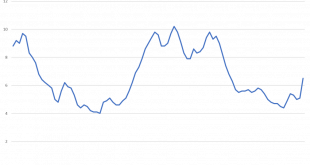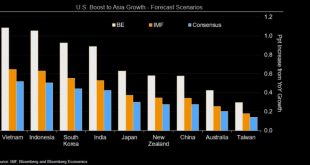Many economic commentators are in favor of phasing out cash. They are of the view that cash provides support to the shadow economy and permits tax evasion. It is also held that in times of economic shocks that push the economy into a recession the rising demand for cash exacerbates the downturn—it becomes a factor of instability. Rather than spend money and boost aggregate demand, the increased demand for cash works against this. Consequently, it is argued that...
Read More »The Long Rehabilitation of Frank Fetter
Abstract: Economics has long history of “rehabilitations,” including W.H. Hutt’s rehabilitation of Say’s law, and Alfred Marshall’s attempt to rehabilitate David Ricardo. The rehabilitation of Frank A. Fetter should be as important as either of these, especially for economists working in the contemporary Austrian tradition. The historical records reveal that for the last century there has been underway a nearly unbroken series of efforts, especially by Austrian...
Read More »Is Price Stability Really a Good Thing?
One of the mandates of the Federal Reserve System is to attain price stability. It is held that price stability is the key as far as economic stability is concerned. What is it all about? The idea of price stability originates from the view that volatile changes in the price level prevent individuals from seeing market signals as conveyed by changes in the relative prices of goods and services. For instance, because of an increase in the demand for apples, the prices...
Read More »Leaving behind the Labor Theory of Value
The labor theory of value has long undermined people’s understanding of the miracles created by markets and rationalized various incarnations of socialism which mangle those miracles. Leonard Read understood why undoing that misunderstanding by all who hold to it, as well as those who just use it as an excuse for what they want government to impose on unwilling citizens, is of immense value to each of us. And in his December 1956 Freeman article, “Unearned Riches,”...
Read More »Why It’s Important to Prepare Students for “Trick Questions”
I have taught economics long enough that I have made use of a variety of “trick” questions in introductory courses. I have found them, used well, to be pedagogically helpful. But not everyone agrees. Whether a question is considered a trick depends on one’s viewpoint. From a professor’s point of view, such questions are often a way of revealing whether students have grasped how to put a principle into action or correctly make a critical distinction in a...
Read More »Since 2008, Monetary Policy Has Cost American Savers about $4 Trillion
With inflation running at over 6 percent and interest rates on savings near zero, the Federal Reserve is delivering a negative 6 percent real (inflation-adjusted) return on trillions of dollars in savings. This is effectively expropriating American savers’ nest eggs at the rate of 6 percent a year. It is not only a problem in 2021, however, but an ongoing monetary policy problem of long standing. The Fed has been delivering negative real returns on savings for more...
Read More »Homicide Rates in 2020 Rose to a 24-Year High. Is This a Crisis of State Legitimacy?
By mid 2020, it was already becoming clear that the United States was experiencing a spike in crime. Indeed, by midyear, numerous media outlets were already reporting remarkably large increases in homicide in a number of cities. It was clear that if then-current trends continued, homicide rates in the United States would reach levels not seen in over a decade. With full-year data for 2020 now available from the FBI’s Crime in the USA report, we can see that those...
Read More »What the United States Can Learn from the European City-States
Over the past year and a half, we have seen some of the largest divides in US state policy in recent history. Certain states such as California have implemented heavy lockdowns, mask mandates, curfews, and other restrictions for months on end, whereas states such as South Dakota never had an official lockdown to begin with. There is now also the heated policy issue of vaccine mandates, with certain locations such as New York City and Los Angeles requiring proof of...
Read More »Biden’s Infrastructure Plan Points to Even More Price Inflation
What is the worst thing a government can do when there is high inflation and supply shortages? Multiply spending on energy and material-intensive areas. This is exactly what the US infrastructure plan is doing and—even worse—what other developed nations have decided to copy. If you thought there were problems of supply and difficulties to access goods and services in the middle of a strong recovery, imagine what will happen once central banks and governments turn the...
Read More »Will the Next “Skyscraper Curse” Be Found in the Digital World?
The vast majority of Mises Wire readers are already familiar with the Austrian business cycle theory. For those who are not, it is an Austrian perspective on what causes the sudden general cluster of business errors that results in a boom-bust cycle, with the busts being the recessions or depressions that we as a society so dread. Murray Rothbard explains this process in his America’s Great Depression: In sum, businessmen were misled by bank credit inflation to...
Read More » Swiss Economicblogs.org
Swiss Economicblogs.org










